Submit a link
Start a discussion
-
 +3 +2
+3 +2Trillion Dollar Industry Is Built on a Lie – Professor Bart Kay
-
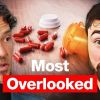 +2 +2
+2 +2How Did We Miss This Study?! (ft' Mike Mutzel)
-
 +1 +1
+1 +1Carnivore Foods Could Be Problematic Your Health – Dr. Paul Mason Speaks Out
1 comments by Gozzin -
 +1 +1
+1 +1Exploding Head Syndrome (Loud Noises When Falling Asleep) | Triggers, Symptoms, Diagnosis, Treatment
1 comments by Gozzin -
 +19 +2
+19 +2I'm Calling On RFK Jr. To Step Down
1 comments by Gozzin -
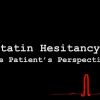 +2 +1
+2 +1Statin Hesitancy: One Patient's Perspective
-
 +2 +1
+2 +1Why are CARDIOLOGISTS so DUMB? (when it comes to THIS)
-
 +2 +1
+2 +10:00 / 1:04:42STATIN NATION: The Great Cholesterol Cover-Up (Full Movie)
-
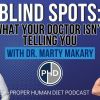 +2 +1
+2 +1WHY YOUR DOCTOR IS MISLEADING YOU with Dr. Marty Makary
-
 +35 +6
+35 +6Man Dies After Surgeon Removed his LIVER
-
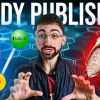 +24 +5
+24 +5Heart of the Matter: Higher LDL on Keto Does NOT Mean More Plaque.
-
 +2 +1
+2 +1Why Your Doctor is Wrong About Cholesterol - Dr. Paul Mason Explains
-
 +2 +1
+2 +1Is THIS How You Want To Die? | AMA 02
-
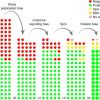 +2 +1
+2 +1Antidepressant efficacy is inflated by the cumulative impact of publication bias, outcome reporting bias, spin, and citation bias on the evidence base
It seems similar bias is likely in other fields of health treatment and science.
-
 +1 +1
+1 +1Beyond the Noise #42: Oops: Leaked Trump-RFK Jr. video
-
 +2 +1
+2 +1This Disease is Deadlier Than The Plague
-
 +30 +10
+30 +10A Family Ate 1 Year Old Frozen Leftovers For Breakfast. This Is What Happened To Their Organs.
-
 +1 +1
+1 +1TWiV 1130: Clinical update with Dr. Daniel Griffin
Good info on long covid,among other topics.
-
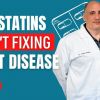 +3 +1
+3 +1What They Don't Tell You About Statins
-
 +2 +1
+2 +1Anesthesia in Tattooing
As the use of anesthesia in tattooing gains popularity, curiosity surrounds its ‘aftermath.’ What happens to the canvas after they’ve been ‘asleep’ for the entirety of an extremely traumatic tattoo session, and what challenges do they face after coming-to and being left to heal?




















